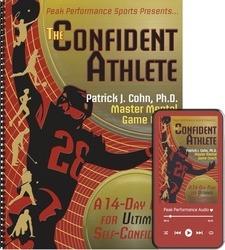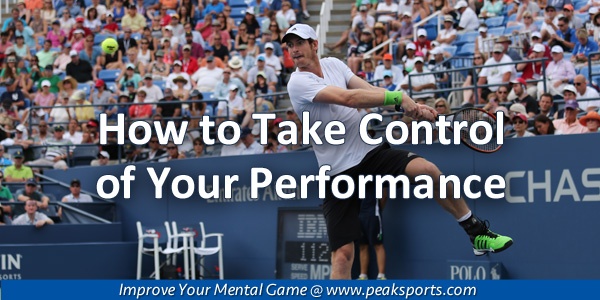Improving Your Sports Performance
When things don’t go as planned with your performance, do you play the “blame game”?
When you lose a game, make a critical error or bomb a performance, do you pin the fault on someone else?
How many times have you heard athletes or teammates say, “If my teammate didn’t mess up, we would have won,” “My coach doesn’t like me and doesn’t pay any attention to me in practice,” “If the referee didn’t make that bad call,” or, “My parents put too much pressure on me?”
There is a huge problem when you engage in the blame game.
If you feel your coach, teammate, officials or parents caused you to perform poorly, then you are saying the only way for you to perform better is if they change.
The blame game basically states that you are not in control of how you perform–other factors determine your success or failure.
Think for a minute, this type of mindset minimizes your part in your performance.
This mindset is:
No matter how hard you work, your results are ultimately determined by other people or factors your can’t control.
The opposite of this mindset is taking responsibility for your results.
Sure, there are some circumstances outside of your control like playing time, weather and injury but the majority of your results are under your control… and that’s the way you should want it to be.
If you take personal responsibility for your success, then you have the power to improve your performance, consistency and attitude.
If you take personal responsibility, you will put forth more effort in practice…
You will pay more attention to the little things that can greatly impact your performance…
You will work more diligently to improve your technique…
You will have a more positive attitude and feel a sense of confidence and control in competitions.
Even some pros shun responsibility and this lack of responsibly often keeps them in a slump or in the under-performing trap.
Novak Djokovic was ranked No. 1 and held the top ranking in the ATP rankings for a total of 223 weeks.
Djokovic seemed unbeatable but something changed after losing in the first round of the Rio Olympic Games and being defeated in the finals at the 2016 U.S. Open…
Djokovic’s performance and consistency started to decline slightly and he lost his No. 1 ranking.
Djokovic had two options:
- Take responsibility for his performance dip
- Look for someone to blame
Djokovic chose the latter and fired his coach, fitness coach, and physiotherapist despite the fact that this support staff was with him when he won 12 slam titles.
In a statement he issued a contradictory statement about his decision.
DJOKOVIC: “I want to find a way to come back to the top stronger and more resilient… It was not an easy decision, but [my team] felt that we need a change.”
Djokovic’s search should be internal…
How can I improve my performance?
Ultimately, you control your fitness, not your fitness coach… You control your technique, not your coach… You control your rehab and recovery, not your physiotherapist.
While it is important to have a strong support staff, it’s up to you to do the work.
You can take back control, if you take personal responsibility for your performance.
Tips For Taking Control of Your Performance
First, avoid playing the blame game and blaming failure on other people or factors.
When evaluating your competition results, look objectively for 1-2 ways you can improve your performance.
If you make a habit of taking personal responsibility, you will empower yourself and be more motivated to find ways to up your game.
Start my taking control of your confidence level with proactive confidence.
Related Sports Psychology Articles
- Tennis Mind Games: Early US Open Exits – Is This Mental or Physical?
- How to Grow Competition Confidence
- Mental Coaches: Why Athletes Assume Focus is to Blame
*Subscribe to The Sports Psychology Podcast on iTunes
*Subscribe to The Sports Psychology Podcast on Spotify
Download a free sports psychology report to improve your mental game!
Learn more about our one-on-one mental game coaching.
The Confident Athlete

“The Confident Athlete” consists of 2 audio programs that include 14 days of confidence fueling exercises and a simple to follow workbook that guides you through the 14 days, helps you apply the strategies, and customizes the exercises to your personal needs.
Let me help you put a stop to the confidence leak. You can learn to have greater levels of confidence in competition than you do in practice by identifying the specific ways you undermine your own confidence and how to convert your practice confidence into COMPETITIVE CONFIDENCE.
“The Confident Athlete” is a ground-breaking system to teach you how to think like a champion and have ultimate self-confidence every time you step on the playing field, court, track, or course. The confident athletes was developed for any athlete – junior to professional –that wants to gain confidence. However, coaches and sports parents can learn how to teach others to perform with ultimate confidence. Use my program if you want to bust a slump or just wanting higher or more consistent levels of self-confidence.

